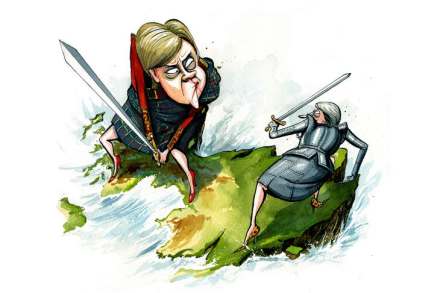Parliament must take back control of Brexit
In the early, sunlit days of New Labour, the left-wing comedian John O’Farrell had a skit on how the Tories, after a generation of dominating British politics, found their party and its principles rejected by the electoral mainstream. ‘Now the Conservatives are like a lunatic fringe party,’ he said. ‘Soon we can expect to see them outside Woolworths next to the Socialist Workers on a Saturday afternoon shouting “Daily Telegraph! Get your Daily Telegraph! Britain out of Europe!”‘ A generation on, the Tories are in power, Woolworths is gone, the Socialist Workers are running the Labour Party, and Britain is indeed coming out of Europe. This serves as a useful





















